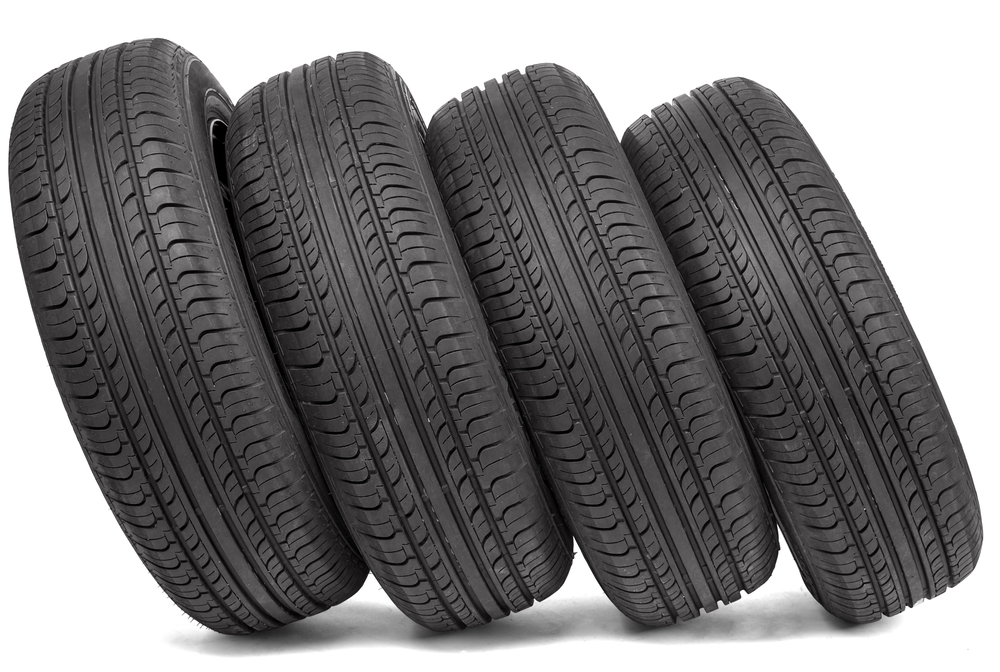Redefining Recovery: Sleep Science and Its Game-Changing Role in Sports
Imagine a world where athletes gain a competitive advantage not just from training harder, but from sleeping smarter. Picture a locker room where high-tech sleep pods and personalized sleep coaches are as common as weights and protein shakes. In today’s fiercely competitive athletic landscape, sleep is emerging as one of the most powerful, underrated tools for peak performance—reshaping the science of recovery and the future of sports.

From Afterthought to Advantage: Sleep’s Historical Journey in Athletics
For decades, the pursuit of athletic excellence revolved around relentless training, strict diets, and mental fortitude. Coaches pushed athletes to their physical limits, often advocating early-morning practices and late-night film sessions. Sleep, if addressed at all, was simply a byproduct of hard work—a passive recovery process, rarely considered a tool for improvement.
Historically, legendary athletes like Michael Jordan, Serena Williams, and Usain Bolt have all mentioned their love of sleep, but it was rarely institutionalized. Early sports science research in the 1960s and 70s began to examine fatigue and its effects on performance, yet the focus was primarily on nutrition and physical recovery. It wasn’t until the 21st century, with the rise of wearable technology and advances in sleep physiology, that sleep became a central figure in high-performance sport.
The shift was catalyzed by groundbreaking research demonstrating that even modest sleep deprivation could impair reaction time, accuracy, and endurance. Teams at the professional and collegiate level began hiring sleep specialists, integrating sleep tracking into athlete monitoring programs. Top franchises in the NBA, NFL, and Premier League now regularly consult with sleep scientists, and Olympic programs have developed individualized sleep protocols for their athletes.
The Science of Sleep: Unlocking Its Performance Secrets
Sleep is a complex biological process, divided into non-REM and REM cycles, each playing a unique role in physical and mental restoration. During deep non-REM sleep, the body releases growth hormone, repairs muscle tissue, and consolidates motor skills—essential for athletic recovery. REM sleep, on the other hand, is crucial for memory processing, emotional regulation, and creative problem-solving, all critical in high-pressure sports environments.
Recent research reveals that athletes need more sleep than the average person, with optimal performance linked to 8-10 hours per night. A 2011 Stanford University study found that basketball players who increased their sleep to 10 hours per night improved their sprint times by 5% and shooting accuracy by 9%. Similar results have been replicated in swimmers, tennis players, and soccer athletes, suggesting a universal benefit across sports disciplines.
Sleep deprivation, even for a single night, can lead to measurable decrements in cognitive function, reaction time, and mood. Chronic sleep loss amplifies injury risk, impairs immunity, and slows recovery from intense training. Conversely, sleep extension—intentionally increasing sleep duration—has been shown to boost endurance, strength, and motor learning.
Beyond duration, sleep quality matters. Fragmented sleep, characterized by frequent awakenings or disrupted cycles, is as detrimental as insufficient sleep. Elite athletes are now assessed for sleep disorders such as insomnia and obstructive sleep apnea, with targeted interventions reducing daytime fatigue and enhancing performance.
The Modern Athlete’s Toolkit: Technology Meets Sleep Optimization
The integration of technology has propelled sleep science from the lab into the locker room. Athletes now wear devices that track sleep stages, heart rate variability, and nocturnal movement, providing real-time feedback to coaches and medical staff. High-level teams invest in sleep pods, blackout curtains, and circadian-friendly lighting to optimize rest in training facilities and hotels.
Personalized sleep coaching has emerged as a new frontier. Sleep scientists analyze individual chronotypes—whether an athlete is a morning lark or a night owl—to design training and competition schedules that align with their natural rhythms. Strategic napping, light exposure therapy, and mindfulness interventions are tailored to each athlete’s needs, reducing jet lag and travel fatigue during demanding seasons.
Australian Rules Football teams have pioneered the use of sleep technology, using data to adjust training intensity and reduce injury during congested fixture periods. In Major League Baseball, where travel across time zones is common, teams employ sleep consultants to advise on sleep hygiene and circadian adjustment strategies. The English Premier League’s Manchester United has even installed sleep pods at their training ground, allowing players to nap between sessions.
The Tokyo 2020 Olympics showcased the global embrace of sleep science, with national teams bringing their own mattresses, blackout blinds, and portable sleep labs to the athletes’ village. The result was not just better-rested athletes, but measurable improvements in performance, mood, and overall well-being.
Sleep as a Performance Metric: New Frontiers in Athlete Monitoring
Sleep is now considered a vital sign in athlete health. Monitoring systems combine sleep data with training load, physiological markers, and psychological metrics to provide a holistic view of readiness. Coaches use this information to individualize practice plans, reduce injury risk, and optimize competition schedules.
The move towards “intelligent load management” is particularly relevant in sports with congested calendars, such as soccer, basketball, and tennis. By integrating sleep tracking into athlete management systems, teams can detect early signs of overtraining or inadequate recovery, allowing for proactive interventions.
Emerging research is exploring the relationship between sleep and “clutch” performance—those decisive moments under pressure. Studies suggest that well-rested athletes make better decisions, exhibit greater emotional control, and recover faster from setbacks. As sports increasingly emphasize mental resilience and tactical awareness, sleep is becoming an essential pillar of psychological as well as physical performance.
Professional teams are also investing in sleep education, teaching athletes about the importance of sleep hygiene—maintaining a consistent sleep schedule, limiting caffeine and screen time before bed, and creating a restful environment. These educational programs extend to youth academies, recognizing that habits formed early can shape long-term health and athletic success.
Barriers and Challenges: Overcoming the Sleep Deficit in Sports
Despite its proven benefits, optimizing sleep in elite sport remains a formidable challenge. Athletes face late-night competitions, early travel, and the stress of high-stakes performance—all of which disrupt natural sleep patterns. The use of stimulants, painkillers, and anti-anxiety medications can further impair sleep quality, creating a vicious cycle of fatigue and poor recovery.
Cultural attitudes in sport also play a role. The “no pain, no gain” mentality persists in many environments, with sleep still viewed by some as a luxury rather than a necessity. Young athletes, eager to impress coaches and earn playing time, may sacrifice sleep in favor of extra practice or social media engagement.
Jet lag and travel fatigue pose unique challenges in global sports. Crossing multiple time zones disrupts the body’s circadian rhythm, leading to insomnia, reduced alertness, and impaired performance. Teams are experimenting with light therapy, meal timing, and pharmacological interventions to accelerate adjustment, but a universal solution remains elusive.
There are also individual differences in sleep need and vulnerability to disruption. Genetic factors influence how much sleep an athlete requires and how quickly they recover from sleep loss. Personalized approaches are therefore essential, but require investment in assessment and ongoing monitoring.
Real-World Success Stories: Athletes Who Sleep Their Way to the Top
The growing appreciation for sleep is reflected in the habits of today’s champions. Roger Federer, widely regarded as one of tennis’s greatest players, has spoken about his commitment to getting 10-12 hours of sleep per night during tournaments. Usain Bolt, the fastest man in history, credits his world records to consistent rest and recovery, stating that sleep is his “number one priority.”
LeBron James, a four-time NBA champion, reportedly sleeps 12 hours per night during the season, using blackout curtains, white noise machines, and digital detox routines to optimize his rest. Tom Brady, the NFL’s most decorated quarterback, maintains a strict sleep schedule, avoiding blue light and caffeine in the evening.
These athletes are not outliers. Surveys of Olympic and professional athletes reveal that sleep is now considered as important as training and nutrition. Coaches and sports scientists are unanimous in their endorsement of sleep as a critical factor in recovery, adaptation, and injury prevention.
The Future of Sleep in Sports: Innovation, Research, and Cultural Change
As the science of sleep continues to evolve, new frontiers are emerging. Researchers are exploring the effects of “sleep banking”—accumulating extra sleep in advance of periods of anticipated deprivation, such as travel or back-to-back competitions. Early studies suggest that sleep banking can buffer the negative effects of acute sleep loss, preserving performance under pressure.
Advances in wearable technology are providing ever more granular data, from brainwave monitoring to real-time assessment of sleep architecture. Artificial intelligence is being harnessed to predict injury risk and recommend individualized recovery strategies, based on patterns in sleep and activity data.
The integration of sleep science into youth sports is perhaps the most exciting development. By educating young athletes about the value of sleep and providing supportive environments, coaches can foster lifelong habits that protect health and performance. This cultural shift, from glorifying exhaustion to prioritizing recovery, has the potential to transform not only elite sport but also public health.
In the coming years, we can expect to see sleep coaches as standard members of sports science teams, alongside nutritionists, physiotherapists, and psychologists. Sleep pods, circadian lighting, and personalized recovery plans will become fixtures in training centers and stadiums.
Sleep as the Ultimate Performance Edge
In a world where marginal gains separate champions from contenders, sleep has emerged as the ultimate performance enhancer—natural, legal, and free. The science is clear: optimal sleep enhances physical recovery, sharpens mental acuity, and fortifies emotional resilience. As athletes and teams embrace this new frontier, the future of sport will be shaped not just by how hard we train, but by how well we rest.
For athletes of all ages and abilities, the message is simple yet profound: sleep is not the enemy of success, but its most powerful ally. By harnessing the science of sleep, we can unlock new levels of performance, resilience, and well-being—on the field, in the gym, and beyond.




